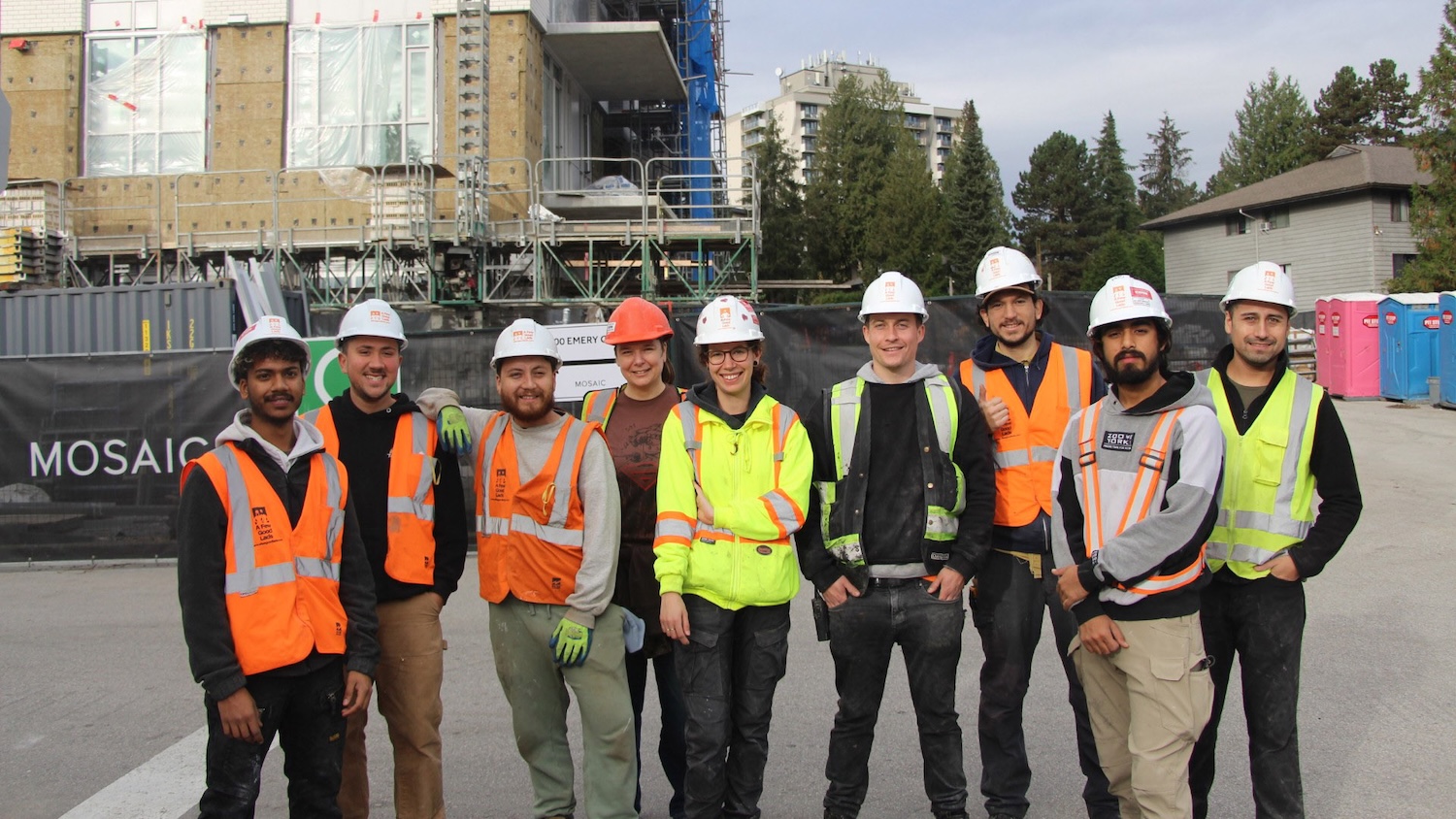
From bricklaying apprentice to industry leader
Tom Dwyer, group production director at homebuilder Keepmoat, explains how his previous experience as an apprentice has provided a solid foundation for his career
What transferable skills did you gain during your training as a bricklayer? And how has that experience contributed to your career progression and ultimately your current role at Keepmoat?
An apprenticeship, particularly where the apprentice is regularly on site and interacting with other professionals, creates a multitude of skills that are transferable across the industry sector and even out to other ventures.
As a bricklayer, it’s integral to have a keen eye for detail and this is built upon in modern apprenticeship learning.
When I was studying, it was a sink or swim type environment, and I learned the power of proactivity and problem solving. I didn’t always have someone on hand to ask, so I had to be solution driven and grow my independence.
When I was studying, it was a sink or swim type environment, and I learned the power of proactivity and problem solving. I didn’t always have someone on hand to ask
Teamwork, communication and time management were also fantastic transferable skills I first began to hone as an apprentice bricklayer.
Working on site and having set deadlines to complete my portion of work broadened my understanding of the bigger picture and also led to my first leadership experiences.
Ultimately, all these skills are the bread and butter in my current role as production director at Keepmoat.
Without building upon my independence, understanding of the wider working world and communication as an apprentice, my career would look very different.
What skills and attributes does a candidate need to successfully undertake an apprenticeship in the industry?
As with most apprenticeships or traineeships, there are no entry requirements to become a bricklayer. However, good hand-eye coordination, attention to detail, problem-solving skills and working as part of a team are great qualities that will put you in good stead.
The most important attributes for apprentices starting out today are a great attitude, enthusiasm and willingness to learn.
No apprentice knows everything from day one – a flexible attitude and acceptance that they might get some things wrong are absolutely key.
As a business, what are the main advantages of hiring an apprentice? And what are some of the challenges?
From a Keepmoat perspective, we champion training and development, we understand that we have a clear responsibility to help deliver a sustainable future, and for us this means prioritising training and development to inspire the next generation of employees.
It’s a priority to continue to invest in creating a working environment where people feel empowered to continue their professional development and are encouraged to grow.
The skills shortage continues to be significant across UK construction, as vacancies in construction trades exceed 140,000. Almost half of these vacancies were for skilled builders.
Having younger trainees on site also opens up a new perspective and way of working, meaning established employees can also grow and learn from everyone involved in construction.
Facilitating ongoing, long-term training such as apprenticeships is a huge commitment from multiple members of staff. A robust HR system to ensure all supervisors and apprentices have everything they need is vital.
Apprentices must be supervised at all times and significant time must be dedicated by tutors to their training on an ongoing basis.
Facilitating ongoing, long-term training such as apprenticeships is a huge commitment from multiple members of staff. A robust HR system to ensure all supervisors and apprentices have everything they need is vital
To support our colleagues with this, we partner with multiple apprenticeship providers, including the National House Building Council (NHBC), whose expert tutors support our apprentices through their learning.
How does the team at Keepmoat help support the journey from apprentice to a long-term homebuilding career?
Keepmoat is creating well rounded, highly skilled construction professionals with the support of our key delivery partners.
Although we cannot guarantee our apprentices will be offered a job following their qualification, we work with key contractors to also provide future employment of our apprentices – a process that Keepmoat is extremely proud of.
What advice would you give to any industry leaders who are considering offering apprenticeships?
The construction skills shortage is a responsibility all industry leaders must face. Figures suggest an extra 224,900 people need to be recruited by 2027, or an average of 44,980 a year, if the sector is to meet expected demand.
Training and working with apprentices is a great way to bring young people into a business, but there are also multiple schemes available to help employers with the cost of hiring and training apprentices.
Offering an apprenticeship is a cost-effective way for businesses to grow their talent pool. By investing in training an apprentice, you can create a well-rounded employee with the skills you need. You will also be doing your bit for the economy, not to mention helping a young person take their first step on the career ladder.
Comments
Comments are closed.







Good article, thanks Tom
According to a (2012) book I am reading Switzerland is one the richest countries on the planet. Their further education / entry to work system is based on the apprenticeship model where people learn “how” to do things – skills.
That used to be our system back in the day when less than 6% went to Uni to learn knowledge, the “what” of things, and earn a degree. Tony Blair’s 1997 mantra “Education, Education, Education” accelerated the shift from 6% towards his target of 50%
Apprenticeships – “how” skills
University – “what” knowledge
Apparently, same book, University benefits individuals though doesn’t scale up to the Nation whereas Apprenticeships do, or at least so in Switzerland.
I think I had a mix of the two – left school at 16, did 3 years hard work on site then a full time degree (civil engineering, Hatfield Poly) on a full grant and sponsored by Taylor Woodrow = no student loan.
Fortunate, yes.
One of the 6%, yes.
Probably unworkable, unaffordable for 50%.
Left me thinking about priorities and what works.
No entry requirements to become a bricklayer, or any other apprenticeship or traineeships. ?
Possibly why skill levels are so low now ?